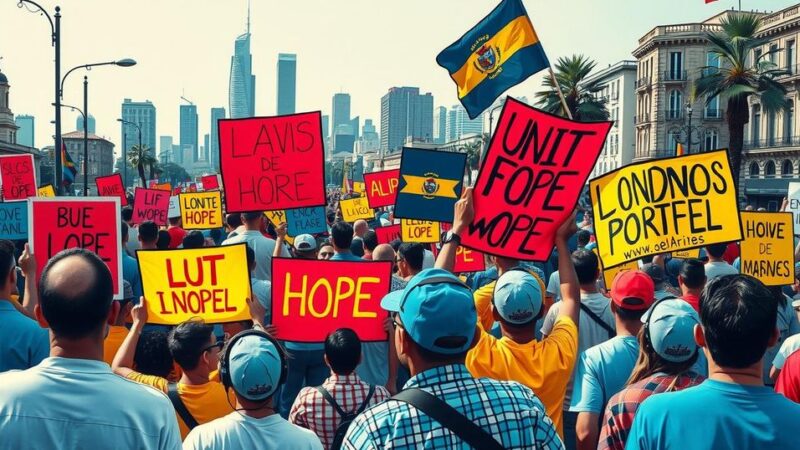The IMF has warned that St. Vincent and the Grenadines, along with several low-income countries, may face economic collapse due to rising debt distress. Urgent action from the G-20 is needed for debt restructuring assistance. The pandemic has severely affected global economic conditions, prompting over 100 million people to fall into extreme poverty. Immediate support is crucial to avoid severe repercussions for these nations.
The International Monetary Fund (IMF) has expressed grave concerns regarding the economic stability of St. Vincent and the Grenadines, alongside numerous other low-income nations, which are facing potential economic collapse. According to the IMF officials, Kristalina Georgieva and Ceyla Pazarbasioglu, approximately 60% of the world’s poorest countries are currently at risk of or already experiencing debt distress, as mentioned in their recent report.
Among the countries deemed at risk are St. Vincent and the Grenadines, Haiti, Kiribati, Maldives, and several Pacific island nations. The urgency for intervention has intensified, especially with the impending expiration of the G-20’s debt-service suspension initiative and rising interest rates, which may hinder these countries’ ability to manage their debts effectively.
The IMF has cautioned that without prompt action from G-20 creditors to expedite debt restructurings and provide debt service assistance during negotiation periods, some nations might face severe economic downturns. The repercussions of the Covid-19 pandemic have already exacerbated economic conditions, with over 100 million individuals now projected to plunge into extreme poverty due to the resulting recession.
Georgieva and Pazarbasioglu furthermore highlighted the necessity for the G-20 to enhance its common framework for loan restructuring to aid struggling nations. Despite the framework being in place since November 2020, it has encountered significant delays, and so far, only three of the 73 eligible nations—Chad, Ethiopia, and Zambia—have sought assistance through the program.
The expiration of the debt-service relief initiative will mandate that participating countries resume their debt payments, thereby necessitating immediate action to restore confidence in the framework and ensure support for other nations facing escalating debt challenges. A report on St. Vincent and the Grenadines from July 2021 indicated a contraction of the economy by 3.8% in 2020 due to declining tourism, with predictions for 2021 indicating stagnant growth before the eruption, further compounded by adverse effects from the La Soufriere volcanic eruption.
Given these circumstances, St. Vincent and the Grenadines stands at a crucial juncture where intervention and support from the international community become vital to avert economic disaster and promote recovery in the wake of significant challenges.
In conclusion, the international community must heed the IMF’s warnings concerning the economic vulnerabilities faced by St. Vincent and the Grenadines and other low-income nations. With the threat of economic collapse looming, immediate action from G-20 creditors is paramount to facilitate debt restructuring and service. The implications of ongoing global challenges, particularly the Covid-19 pandemic, further necessitate a collaborative approach to support these economies in their recovery efforts.
Original Source: wicnews.com






